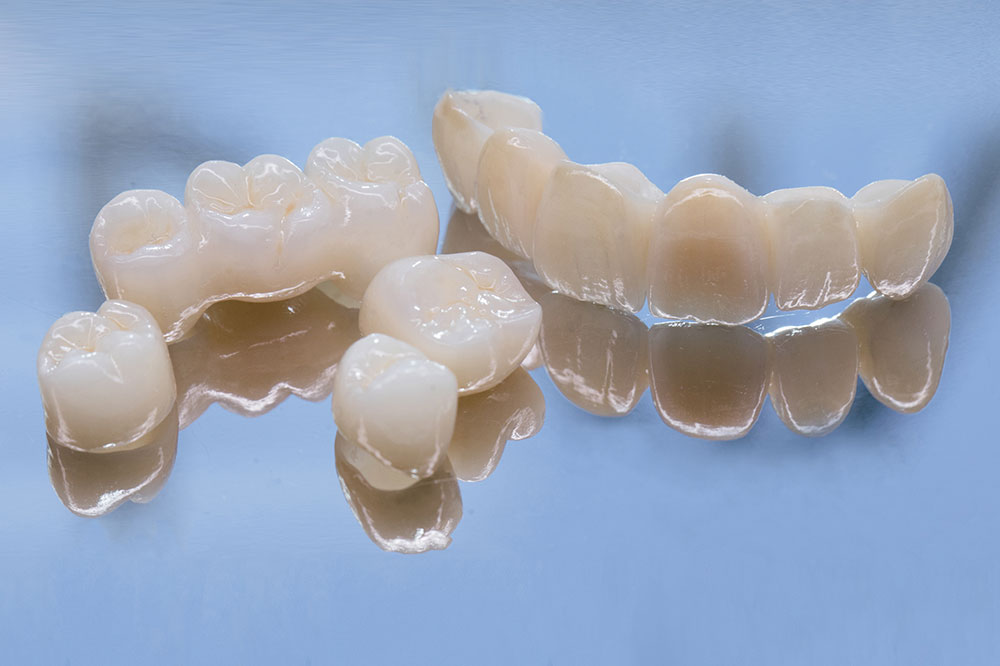Things to Know Before Opting for Dental Bridges
A missing tooth can come with its own set of difficulties. So the issue with more than one missing tooth is imaginably worse. The reasons can include a mishap, a dental complication, or coming of age. Irrespective, the consequences are difficulty eating and speaking and a fall in confidence. A popular solution to this problem? Dental bridges. They help replicate the function of the teeth without having to shell out an exorbitant amount of money for dental procedures. If you are looking for an efficient and cost-effective way of dealing with missing teeth, read up about dental bridges.
Types
Dental bridges are a convenient and affordable way of making up for a missing tooth or more.

- Traditional bridges
In the case of traditional bridges, the replacement teeth are held in place with the help of crowns being cemented on abutment teeth.
This is an option similar to traditional dental bridges. The only difference is that the crown is replaced by a metal porcelain frame fixed onto the abutment teeth. Maryland dental bridges are best when you have a natural tooth on both sides of the missing teeth.
This is a feasible option for people with only a single natural tooth next to the missing teeth. The crown of the abutment tooth supports the cantilever bridge.
This type of dental bridge is supported by implants instead of a framework. These are considered the best dental bridges since they last longer and are more stable than the other options. However, you will need to make multiple visits to the dentist for this procedure to be completed. It also involves surgeries for implant and bridge placement. You also need to consider that this may or may not be an option for you, depending on the bone density of your jaw.
Things to know about dental bridges
Life expectancy
The life expectancy of the dental bridge will depend on how well you care for it and how often you visit the dentist. If you follow the fine print of how to look after a dental bridge, it won’t end up costing you in terms of shorter life expectancy and increased chances of infections. Implant bridges bring a higher life expectancy, although the crown might need a replacement sooner. That said, most bridges need to be replaced once they have crossed the 10-year mark, while some might even go up to 15 years.
Make eating easier
A common concern some people have with getting bridges is they are worried it might affect their speaking and eating. However, there is nothing of the kind to worry about. Instead of struggling to live with missing teeth and having trouble speaking clearly, getting bridges is a more comfortable option. You might need time to adjust and get used to the bridge fittings after getting used to the missing teeth. To make things easier, try and stick to softer foods to not put pressure on the bridges. This will allow you time to get used to chewing with the bridges.
Not suitable for everyone
Albeit being a common choice to fill in for missing teeth, bridges are not an option for everyone. Your dentist or orthodontist will have to consider a few things before determining whether you are a suitable candidate for dental bridges or not. The determining factors include:
- Good oral hygiene
- Overall good health
- Healthy bone structure to support the bridge
- Missing one or more permanent teeth
After completing the diagnostic process, you will have to sit down with the orthodontist to decide which bridge would be best for you and your budget.
Not a permanent solution
Dental bridges are designed to fill in for missing teeth. They are designed to mimic the action and function of teeth. However, it needs to be noted that these are just a temporary solution for the missing teeth. Since the bridges are fixed in place, they undergo constant wear and tear and can soon be worn out. Their lifespan will depend on how well they care for their oral health and how often they keep up with their dentist appointments. Eventually, you will need to get them replaced to avoid any complications.
Do not prevent bone loss
Dental bridges cannot prevent the loss of bone and gums. This is especially true if you are down by more than just a single tooth. Since the bone and gum tissue is left unstimulated for a long time, it will eventually start deteriorating. The design of dental bridges enables them to fill in for missing teeth. However, the bridge is not connected to the jaw bone or the gums. Therefore, can do very little to prevent their loss.


